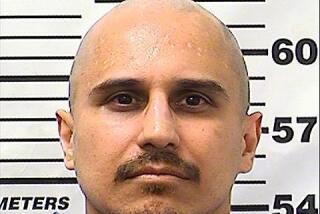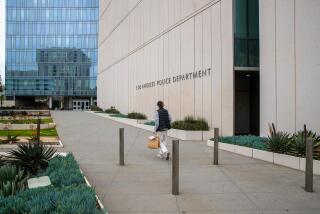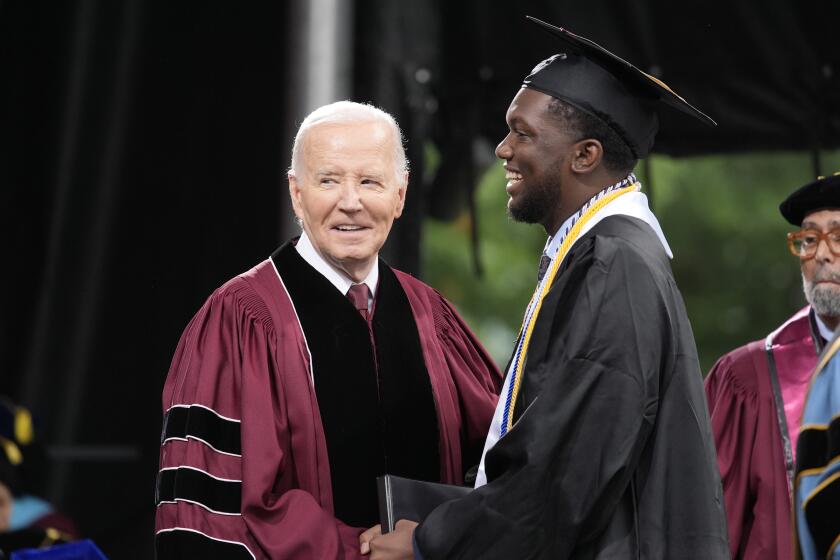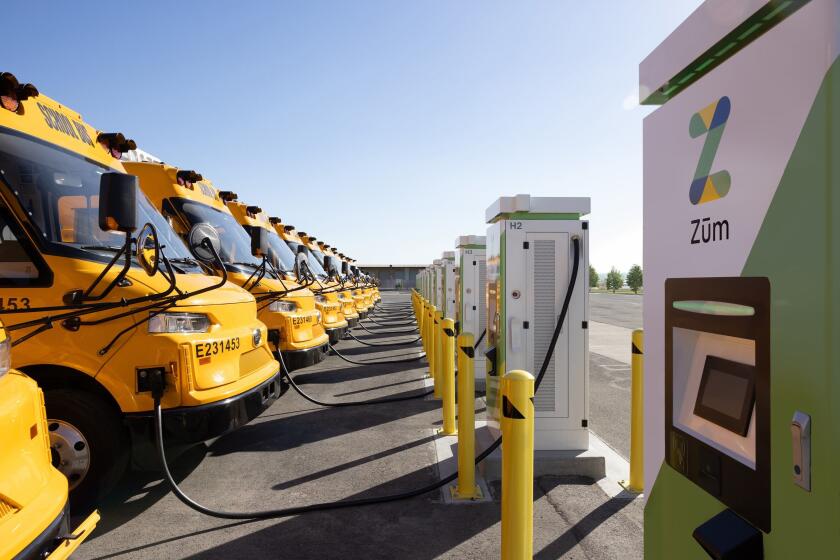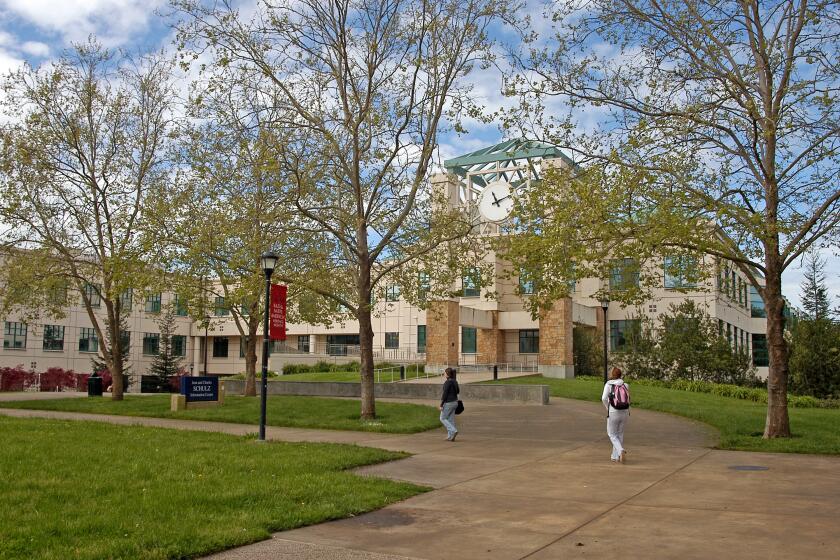Tobacco Tax Might Fund Preschools
A local commission with the power to dole out tobacco tax money to programs for children is expected to take up a proposal today that, if approved, would attempt to give every toddler in Los Angeles County free access to full-day preschool.
If successful, proponents say, it could recast the lives of thousands of ordinary families and become a model for communities across the nation.
But some child educators question whether the still-sketchy proposal to establish universal preschool in Los Angeles County is wishful thinking on a grand scale.
Indeed, some warn that it could create a cottage industry that would be impossible to monitor for quality while diverting millions of dollars away from other needs.
Those starkly divergent views are expected to come to a head today as the Los Angeles County Children and Families First Commission, which oversees Proposition 10 tobacco-tax revenues, is set to decide whether to spend that money to make preschool available to all families that want it, regardless of income.
The plan would seek to provide opportunities to more than 100,000 Los Angeles County children who today cannot find a place in a local preschool and would cost upward of $100 million a year.
Even as today’s vote approached, details of the proposal still were being negotiated. But some aspects were taking shape Wednesday.
Advocates said they want to target 3- and 4-year-olds initially, for instance, and to dramatically expand the region’s existing child-care services, including Head Start programs, child-care centers and the number of home-based child-care providers.
According to backers of the preschool idea--including filmmaker and child advocate Rob Reiner, who spearheaded the 1998 proposition--the programs that the tobacco money would pay for would stress reading and math skills but also try to provide low- and middle-income families with access to child-care services that otherwise would be too expensive for them to afford. The initiative would pay to train new preschool teachers and to find new spaces for preschools.
It would first be targeted at neighborhoods with low-performing schools, because studies show that children living in these areas are the ones who most benefit from early education.
The aim of advocates is to enroll at least 70% of the county’s 300,000 3- and 4-year-olds in the voluntary program.
Still to be determined is exactly how families would access the program, how much it would cost per child and how caregivers who qualify to operate preschools would be paid.
“It’s probably one of the most important investments that Prop. 10 could make,” said Yolie Flores Aguilar, who directs the county’s Children’s Planning Council. “Los Angeles County has one of the weakest child-care systems in the state. But I have to come at it from the vantage point of the child. My worry is that so little is known about what this would mean. I’m waiting to see the details.”
The stakes of the debate extend even beyond its implications for educating local children. Backers hope that the county can become a model for the nation, creating new opportunities for young people despite geographic challenges and an enormously diverse population.
“Los Angeles County could be a beacon if they pass this,” said Helen Blank, child-care program director for the Children’s Defense Fund, a Washington, D.C.-based child advocacy group. “Preschool is one of the first building blocks in education reform. Study after study shows that it makes a difference in how children will do when they reach school.”
Failure, however, could dampen efforts to expand such programs. The worst-case scenario, according to child educators, would be to have Los Angeles stumble into an ill-conceived program that sticks kids in low-quality care and does nothing to prepare them for kindergarten.
Across the state, 58 county commissions are administering money supplied to them by Proposition 10, which levies a 50-cent tax on every pack of cigarettes.
Some have used revenues from the cigarette tax for prenatal services, parent training and other programs.
But there has been no attempt to marshal the money for a program as broad as universal preschool.
In Los Angeles County, the commission that administers the local share of the tax revenue receives about $160 million a year, though that amount is expected to decline as smoking decreases.
Proponents said a fully mapped plan of action is not likely to be available for months.
But the nine Proposition 10 commissioners will be presented today with a set of objectives and strategies that could begin rolling out over the next year and stretch into the next decade.
Teresa Nuno, director of programs and planning for the Los Angeles County commission, said the plan will address quality, availability and affordability of the programs, and will make suggestions as to how the county might manage to recruit and train people needed to care for children.
The plan calls for creating a single set of standards for preschools regardless of their setting and recommends establishing a credentialing program for teachers and caregivers. It also would create an independent body to monitor preschools and evaluate the program.
Supporters of the preschool proposal acknowledge that tobacco taxes will not provide enough money to pay for the entire effort, but they say they hope to enlist state and federal help as the program takes hold.
“It is an amazing opportunity to spark a larger debate and bring in more resources,” said Ben Austin, a spokesman for Reiner. “Prop. 10 can’t do it alone and wasn’t designed to. Los Angeles can show that it can be done and bring others on board, because it’s going to require general funds from the state and from the feds and a lot of public will.”
State officials say that if the measure passes, they will be looking at Los Angeles closely as a model for other cities. But they promised no money.
“We applaud the Prop. 10 commission for getting focused on something that could potentially have great impact for Los Angeles--and because L.A. is so large--for the state of California,” said Secretary of Education Kerry Mazzoni. “But given the budget deficit, right now we can’t contemplate any kind of additional expenditures.”
A recent UC Berkeley study found that at least 100,000 preschool-aged children in Los Angeles County are on waiting lists for subsidized care.
But although many educators agree that providing quality preschool is an important goal, some remain dubious about the proposal being debated in Los Angeles.
They are especially skeptical that home-based child-care providers could be trained to provide the kind of care needed.
“What you don’t want to do is simply pay more money for a system you already have,” said Steven Barnett, a Rutgers University professor and director of the National Institute for Early Education Research.
“If you give family child-care providers the responsibilities for the educational preparation of kids, you have to give them the qualifications,” Barnett said. “And if they get the qualifications, how can you possibly afford to pay them a teacher’s salary? I think the answer is you can’t.”
More to Read
Start your day right
Sign up for Essential California for news, features and recommendations from the L.A. Times and beyond in your inbox six days a week.
You may occasionally receive promotional content from the Los Angeles Times.

